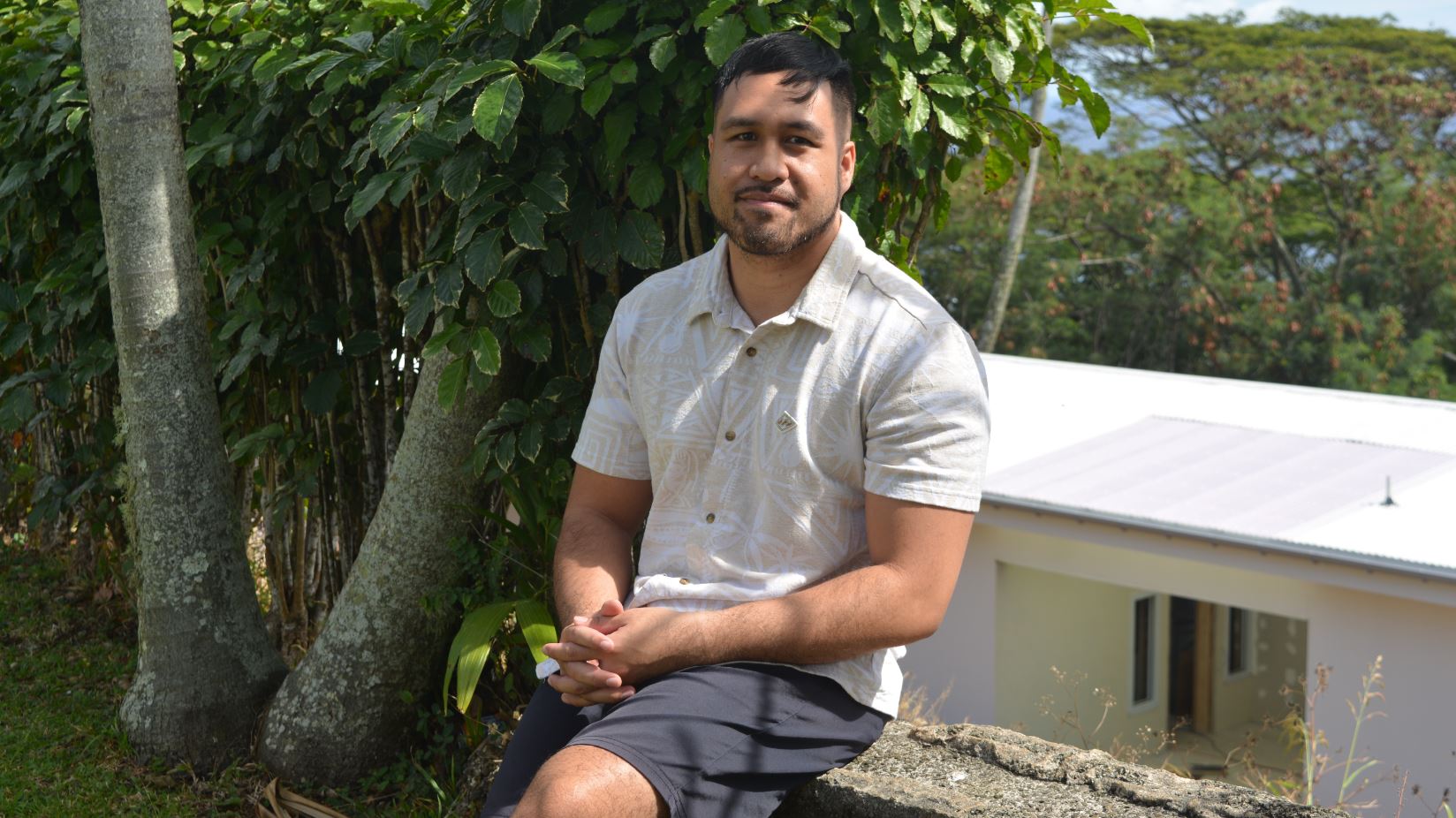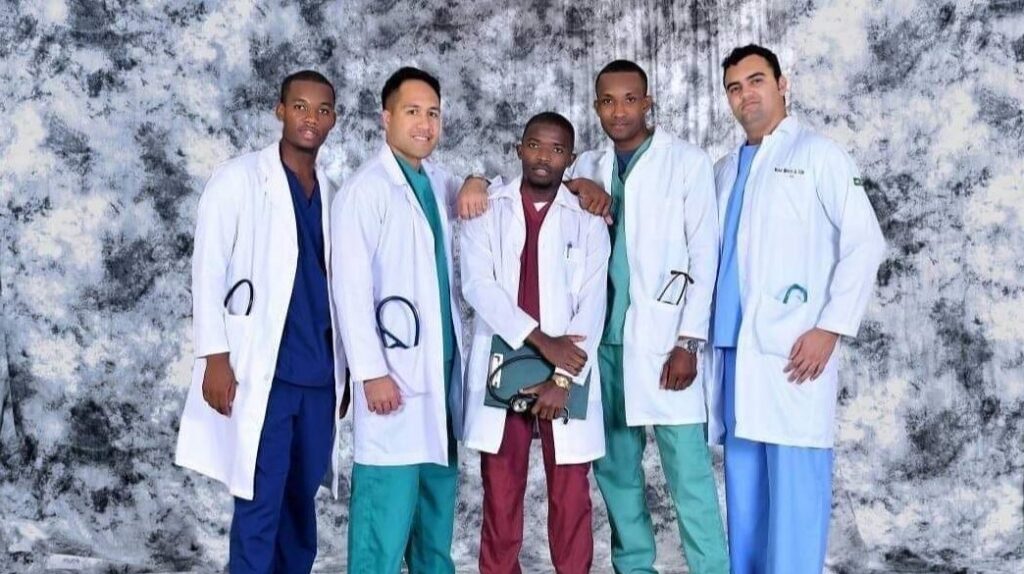‘You never stop learning in medicine’
Saturday 20 August 2022 | Written by Sian Solomon | Published in Features, Go Local

Dr Norman Tangi. Photo: SIAN SOLOMON/22081620
Despite the challenges of Covid-19, a couple of young doctors have returned home to the Cook Islands to pursue their dream career in medicine.
Norman Tangi was inspired to become a doctor by his aunt who used to work as a lab technician. It was his aunt’s love of “all medical things” and tending to his wounds as a child that inspired him to follow in her footsteps.
But once he became an “adolescent”, the younger Tangi began to reconsider his career path in medicine. It wasn’t until the end of high school he ultimately decided to pursue a career in medicine.
“I was interested in medicine from a young age because of my aunty who was a lab technician,” Tangi says. “She had all the medical things at home that interested me, and every time we were injured, she would always help treat our wounds.”
“But my passion for medicine actually grew stronger in my last year of High School because I was able to do an experience-based learning up at the hospital,” he explains.
“I was able to go through each department and stay a few days and that’s when I met Dr Deacon, who was a registrar back then and was performing a surgery which I thought was pretty cool.”
After high school, the young Tangi moved to Cuba to study at the University of Cuba, where he was one of two students offered a scholarship by the Cuban government.
Back in 2012 the secretary of health in the Cook Islands at the time, Tupou Faireka, had established a relationship with the Cuban embassy in New Zealand, which was part of the country’s growing relations.
During the first year of his medical degree, Tangi says he focused primarily on his study which was all theoretical based.
He shares that it was similar to theory-based learning in Fiji, where students are required to do their first three years of theory and then the next three years as practical.
“Cuba was a very interesting country,” reflects Tangi. “It’s tropical, like we are (the Cook Islands), except they are speaking Spanish, and the culture is a lot different.
“But the biggest issue for me was the language,” he says. “Because you don’t actually start or go into the field of medicine until you do a crash course in Spanish, and if you don’t pass that then there's no point moving on.
“Luckily I was able to pass the exam in the Spanish language.”

Later on, during his studies, he eventually mastered speaking the Spanish language and became well-versed in the country’s culture which he says was enlightening and enriching. Yet the study of medicine still remained a challenge for him, with adaption to the culture a different aspect of the problems he faced.
“The interesting thing about my university was that it was an international university, so there were no Cuban students there for the first three years,” he reveals. “I was there with a lot of Asian, African, European, and American students, but our tutors were Cubans.”
“From my third year onwards I was sent out throughout Cuba, where every province in Cuba had a medical university,” he adds. “By my fourth, fifth, and sixth year I was learning in hospitals, and able to approach patients and apply everything I learned theoretically.”
Following the completion of his degree, Tangi decided to return home to the Cook Islands.
On arrival back into the country, he says the Ministry of Health didn’t know what to do with him since his studies were completed outside of countries where Cook Islands doctors usually go to, such as Fiji or New Zealand.
He says Te Marae Ora health ministry offered him a job at the Rarotonga hospital which was more experience-based learning – not part of the internship programme which was introduced in 2020 after the global outbreak of Covid-19.
“I’m the first one to complete my studies outside of Fiji or New Zealand, where most of our doctors come from. So they didn’t know what to do with me,” he says. “Everything they knew was in a different language, and they didn’t have a basis to base my learning on.”
“But all in all they accepted the fact that I had put in a lot of effort, and came back with a degree and that I’m back here to help our people. So they set up an internship programme.
“(Also) I moved back just before it (Covid-19) became an international disaster, so I was quite lucky,” he adds.
“I graduated in 2019, a year before Dr Hannah (Cummings) … the internship programme was implemented in 2020, because the whole country was in shut down mode, and there wasn’t anything running straight after Covid hit.”
Tangi shares his passion for surgery. He says his plan was always to return home to the Cook Islands.
After two years Tangi will pick his specialty in medicine, with Dr Hannah Cummings revealing her choice in Obstetrics and Gynaecology.
“I have a passion for surgery, which started way back when I saw Dr Deacon,” he shares.
“But I’m not quite sure what I would like to specialise in as options are very limited here … my second option is to become an emergency doctor.
“The long-term plan is to come back and serve our people,” he adds. “But limitations are here, and the matter of fact is that we have a lot more Cook Islands doctors overseas, and the financial aspect of things does speak a lot. But it does depend on where your heart lies, and your passion for it.
“You never stop learning in medicine.”














































